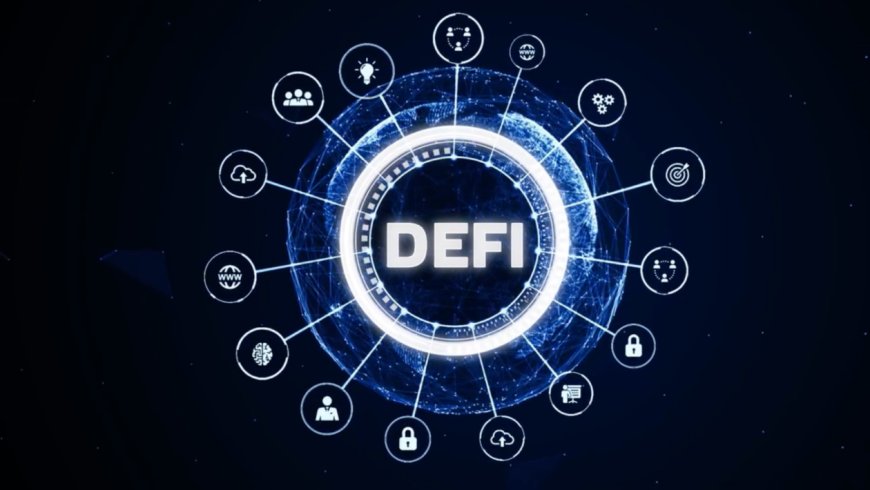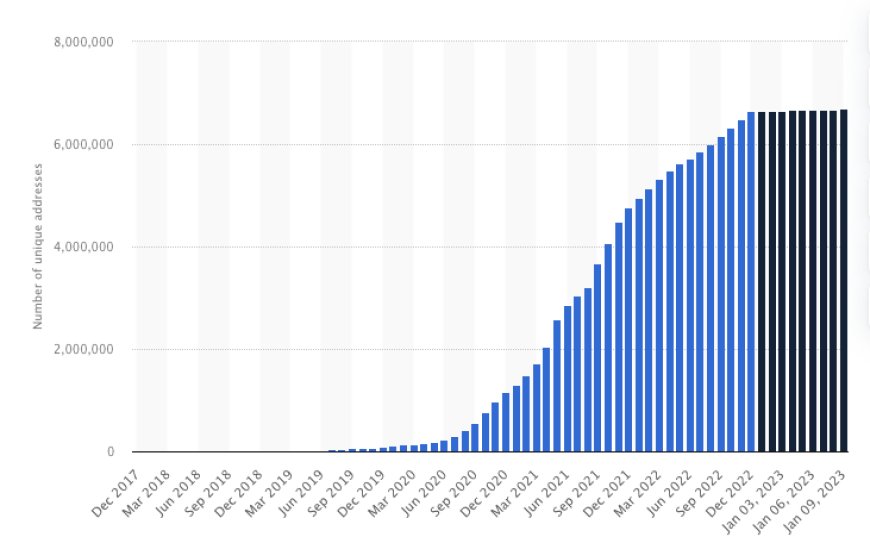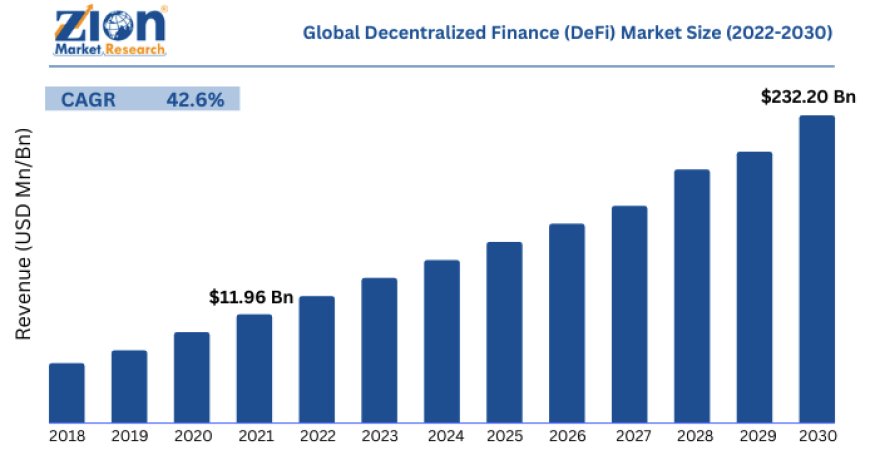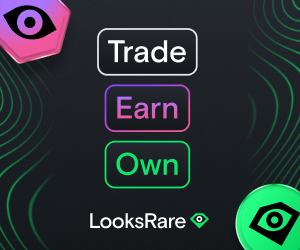What is DeFi: A Beginner's Guide to Decentralized Finance
Learn about decentralized finance (DeFi), the umbrella term for peer-to-peer financial services on public blockchains. Explore the world of blockchain-based finance and its transformative potential.

Decentralized finance, or DeFi for short, refers to a system that utilizes blockchain technology to eliminate intermediaries and enable peer-to-peer financial transactions with lower costs.
From decentralized exchanges and lending platforms to stablecoins, defi applications, and smart contracts, we will break down each element, providing you with a comprehensive understanding of how they work together to create a decentralized financial ecosystem.
Understanding the basics of DeFi
Unlike traditional bank accounts, DeFi operates on a decentralized network, ensuring transparency, security, and accessibility to all.
DeFi encompasses a wide range of financial applications and services that are built on the Ethereum blockchain but also on other new blockchain networks. These applications are designed to provide users with complete control over their funds, without the need for intermediaries such as banks or financial institutions. By leveraging smart contracts, DeFi platforms automate defi protocols processes that were previously manual, facilitating faster and more efficient transactions.
Decentralized finance is not limited to a specific geographic location and is accessible to anyone with an internet connection. This opens up new possibilities for individuals who are unbanked or underbanked, as they can now access financial services without the need for a traditional bank account.
DeFi data
In 2023 there were more than 7 million DeFi users (Number of unique addresses that either bought or sold a Decentralized Finance (DeFi))

(source: Statista)
Decentralized Finance (DeFi) Industry: Growth Drivers
The demand for decentralized finance and defi services in blockchain and insurance is on the rise, propelling global market growth. Furthermore, the global decentralized finance (DeFi) market stands to benefit from a significant surge in e-sports events and online gaming activities. Additionally, the industry landscape will be enhanced by the increasing awareness of the tremendous benefits offered by DeFi technology service providers.
The DeFi market total value is projected to exceed USD 232.20 billion by the year 2030.

(source: Zionmarketresearch)
Benefits of decentralized finance
The rise of DeFi has sparked interest and excitement among investors, developers, and users worldwide. One of the main advantages of decentralized finance is its ability to provide financial services to the unbanked or underbanked population. With traditional banking systems, many individuals are excluded from accessing basic financial services. DeFi bridges this gap by offering a more inclusive and accessible alternative.
Another key benefit of DeFi is its transparency. All transactions on the blockchain are visible to the public, ensuring accountability and reducing the risk of fraud or manipulation. Users can verify the authenticity and integrity of transactions, enhancing trust in the system.
Furthermore, decentralized finance allows for greater financial privacy. Unlike traditional banking systems, which require individuals to disclose personal information, DeFi platforms do not require the same level of identification. This offers users the freedom to transact without compromising their privacy.
Key components of the DeFi ecosystem
The DeFi ecosystem is composed of various key components that work together to create a decentralized financial system. These components include decentralized exchanges, lending platforms, stablecoins, defi apps, and smart contracts.
Decentralized exchanges (DEXs) are platforms that facilitate the exchange of cryptocurrencies without the need for a central authority. By eliminating intermediaries, DEXs provide users with greater control over their assets and reduce the risk of hacking or fraud.
Lending platforms in the DeFi space allow users to lend and borrow funds without the need for traditional intermediaries. These platforms leverage smart contracts to automate lending and borrowing processes, ensuring transparency and reducing the risk of default.
Stablecoins are cryptocurrencies that are pegged to a stable asset, such as a fiat currency or a commodity. These digital assets maintain a stable value, making them ideal for everyday transactions and reducing the volatility often associated with cryptocurrencies.
Smart contracts are self-executing contracts with the terms of the agreement written directly into the code. They automatically execute when certain conditions are met, eliminating the need for intermediaries and ensuring the trustless execution of agreements.
Popular decentralized finance platforms and protocols
The DeFi ecosystem is constantly evolving, with new platforms and protocols being developed to cater to different financial needs. Some of the most popular DeFi platforms include:
1. Compound: A lending platform that allows users to earn interest on their cryptocurrency holdings or borrow funds by collateralizing their assets.
2. Uniswap: A decentralized exchange that enables users to trade ERC-20 tokens directly from their wallets, without the need for intermediaries.
3. MakerDAO: A decentralized autonomous organization that operates the Dai stablecoin, which is pegged to the US dollar. Users can generate Dai by collateralizing their crypto assets.
4. Aave: A lending platform that offers users the ability to earn interest on their deposits or borrow funds in a decentralized manner.
5. Synthetix: A decentralized synthetic asset platform that allows users to trade and access a wide range of synthetic assets, including commodities, stocks, and fiat currencies.
How to get started with DeFi
Getting started with DeFi may seem intimidating, but it is actually quite straightforward. Here are a few steps to guide you through the process:
1. Set up a crypto wallet: To interact with DeFi platforms, you will need a cryptocurrency wallet. There are various options available, including web-based wallets, mobile wallets, and hardware wallets. Choose a wallet that suits your needs and ensure that it supports the cryptocurrencies you plan to use. Always save your private keys offline.
2. Research and choose a DeFi platform: There are numerous DeFi platforms available, each with its own unique features and offerings. Research different platforms and choose one that aligns with your financial goals. Consider factors such as user interface, security, fees, and the range of services offered.
3. Connect your wallet to the chosen platform: Once you have chosen a platform, you will need to connect your cryptocurrency wallet to it. This typically involves using a browser extension or scanning a QR code. Follow the platform's instructions to complete the connection.
4. Start exploring and transacting: With your wallet connected, you can now start exploring the various features and services offered by the platform. Whether you want to trade cryptocurrencies, lend or borrow funds, or participate in liquidity pools, take the time to familiarize yourself with the platform's interface and functionalities.
Remember to start with small amounts and gradually increase your involvement as you become more comfortable with DeFi. Keep in mind that the cryptocurrency market is highly volatile, and it is important to conduct thorough research and exercise caution when making financial decisions.
Risks and challenges in decentralized finance
While decentralized finance offers numerous benefits, it is not without its risks and challenges. It is important to be aware of these risks before diving into the world of DeFi and financial products:
1. Smart contract vulnerabilities: Smart contracts are vulnerable to bugs and exploits, which can result in financial losses. It is crucial to thoroughly audit smart contracts before interacting with them and to only use platforms that have undergone rigorous security testing.
2. Market volatility: The cryptocurrency market is known for its volatility, with prices fluctuating rapidly. This volatility can impact the value of assets held in DeFi platforms, potentially leading to significant losses.
3. Liquidity risks: Some DeFi platforms rely on liquidity provided by users. If there is a lack of liquidity, it can impact the platform's functionality and the ability to transact.
4. Regulatory uncertainty: The regulatory landscape surrounding decentralized finance is still evolving. As a result, there is a degree of uncertainty regarding how governments and regulatory bodies will approach and regulate DeFi. This uncertainty can impact the long-term viability and stability of the ecosystem.
DeFi investment strategies
Investing in decentralized finance and defi products can be a lucrative opportunity, but it is essential to have a well-thought-out investment strategy. Here are a few strategies to consider:
1. Diversify your portfolio: Spread your investments across different DeFi platforms and cryptocurrencies to mitigate risk. Diversification can help protect your portfolio from the volatility of individual assets or platforms. invest in different yield farming projects.
2. Stay updated with market trends: Keep abreast of the latest developments in the DeFi space. Stay informed about new platforms, protocols, and emerging trends to identify potential investment opportunities.
3. Perform thorough research: Before investing in a DeFi platform or protocol, conduct thorough research. Evaluate factors such as the team behind the project, the platform's security measures, and the potential for adoption and growth.
4. Monitor your investments: Regularly review the performance of your investments and make adjustments as needed. Stay vigilant and be prepared to exit positions if market conditions change or if a platform's fundamentals deteriorate.
The future of decentralized finance
Decentralized finance has the potential to disrupt the traditional financial system and reshape the way we manage and exchange money. As the technology behind DeFi continues to evolve and mature, we can expect to see greater adoption and innovation in the field as compared to traditional financial services.
The integration of decentralized finance with real-world assets, such as real estate or commodities, could open up new investment opportunities and increase the accessibility of these assets to a wider range of individuals.
Moreover, advancements in blockchain scalability and interoperability could address some of the current challenges in DeFi, such as high transaction fees and limited liquidity. This would further enhance the usability and practicality of decentralized finance.
Conclusion
Unlike traditional finance. decentralized finance is an exciting and rapidly evolving field that offers a range of benefits and opportunities. By eliminating intermediaries and leveraging blockchain network technology, DeFi provides greater financial inclusion, transparency, and control to individuals worldwide. The potential of defi is huge as it can reach more than 230 billion in value by 2030.
As you embark on your journey into the world of decentralized finance, remember to conduct thorough research, exercise caution, and stay informed about the latest developments. With the right knowledge and strategy, you can unlock the power of DeFi and potentially reshape the future of finance as we know it.










